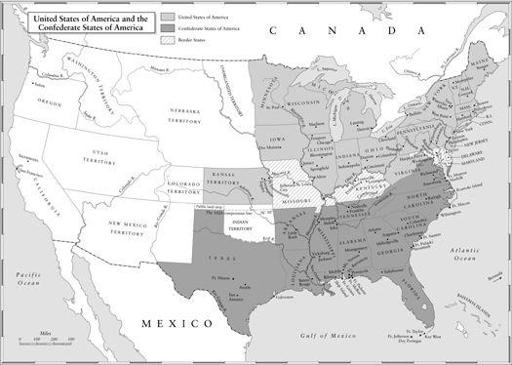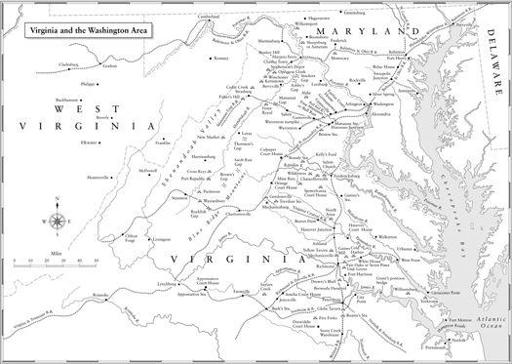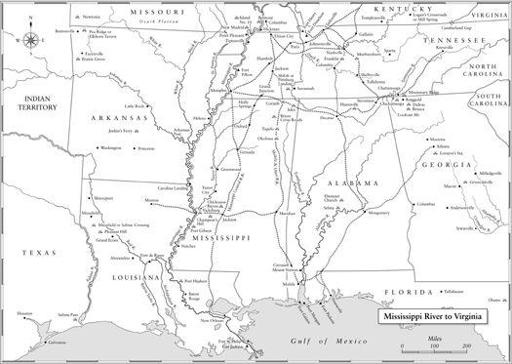A World on Fire: Britain's Crucial Role in the American Civil War (6 page)
Read A World on Fire: Britain's Crucial Role in the American Civil War Online
Authors: Amanda Foreman
Tags: #Europe, #International Relations, #Modern, #General, #United States, #Great Britain, #Public Opinion, #Political Science, #Civil War Period (1850-1877), #19th Century, #History
Roundell Palmer, 1st Earl of Selborne
(1812–95)
LIBERAL
—Pro-Northern solicitor general, 1861–63; attorney general, 1863–66; Lord Chancellor, 1872–74 and 1880–85.
Henry John Temple, 3rd Viscount Palmerston, known as Lord Palmerston
(1784–1865)
LIBERAL
—Secretary of state for foreign affairs, 1830–34, 1835–41, and 1846–51; home secretary, 1852–55; prime minister, 1855–58 and 1859–65.
John Arthur Roebuck
(1802–79)
LIBERAL
—Member of Parliament for Bath, 1832–37 and 1841–47; member of Parliament for Sheffield, 1849–68 and 1874–79; pro-Southern.
John Russell, 1st Earl Russell
(1792–1878)
LIBERAL
—Secretary of state for foreign affairs, 1852–53 and 1859–65; leader of the opposition, February–December 1852 and 1866–68; prime minister, 1846–52 and 1865–66.
Edward Adolphus Seymour (later St. Maur), 12th Duke of Somerset
(1804 or 1805–85)
LIBERAL
—First commissioner of woods and forests, 1849–51; first commissioner of works, 1851–52; First Lord of the Admiralty, 1859–66.
Pro-Northern Supporters
Elizabeth Blackwell
(1821–1910)—British-born doctor; first woman to earn a medical degree in the United States; first woman to be placed on the British Medical Register; founder of the New York Infirmary for Indigent Women and Children, 1857.
John Elliott Cairnes
(1823–75)—Irish economist; Whatley Professor, Trinity College, Dublin, 1856–61; professor of jurisprudence and political economy at Queen’s College Galway, 1859–70; author of
The Slave Power,
1862.
Lord Frederick Charles Cavendish
(1836–82)—Progressive politician; private secretary to Lord Granville, 1859–64; private secretary to Prime Minister Gladstone, 1872–73.
Thomas Hughes
(1822–96)—Author of
Tom Brown’s Schooldays,
1857.
Fanny Kemble
(1809–93)—Actress; author of
Journal of a Residence on a Georgian Plantation in 1838–1839,
1863.
Peter Sinclair
—Social reformer; author of
Freedom or Slavery in the United States: Being Fact and Testimonies for the Consideration of the British People,
1863.
Goldwin Smith
(1823–1910)—British Canadian historian and journalist; Regius Professor of Modern History at Oxford University, 1858–66.
Harriet Sutherland-Leveson-Gower, Duchess of Sutherland
(1806–68)—Granddaughter of Georgiana, Duchess of Devonshire; a champion of the American antislavery movement.
Pro-Southern Supporters
Mary Sophia Hill
(1819–1902)—Sister of Sam Hill, 6th Louisiana Volunteers; regimental nurse in the 6th Louisiana Volunteers; Federal prisoner of war, 1864.
Thomas Kershaw
—British peace campaigner on behalf of the South.
James Spence
(1816–1905)—Author of
The American Union,
1862; Liverpool businessman; pro-Southern propagandist and lobbyist.
Francis William Tremlett
(1821–1913)—Vicar of St. Peter’s Church, Belsize Park; unofficial chaplain to the Confederate navy in England.
Edward Montagu Stuart Granville Montagu-Stuart-Wortley-Mackenzie, 3rd Baron Wharncliffe
(1827–99)—President of the Manchester Southern Independence Association.
The War at Sea
Sir William Nathan Wrighte Hewett
(1834–88)—Commander of HMS
Rinaldo
, 1861–62, and HMS
Basilisk
, 1865–69; commander of the ill-fated
Condor,
1864.
The Hon. Augustus Charles Hobart-Hampden
(1822–86)—Under the pseudonym “Captain Roberts” commanded the blockade runners
Don
and
Falcon
during the Civil War.
Sir Alexander Milne, 1st Baronet
(1806–96)—Royal Navy commander-in-chief, North America and West Indies, 1860–64; First Naval Lord, 1866–68 and 1872–76.
Thomas Taylor
(1841–?)—Supercargo on the blockade runners
Banshee, Will o’ the Wisp, Wild Dayrell, Stormy Petrel,
and
Wild Rover;
author of
Running the Blockade,
1896.
Volunteers
Bennet Graham Burley [also spelled Burleigh]
(c. 1844–1914)
CONFEDERATE
—Scottish volunteer, Confederate navy; Federal prisoner of war, 1864; went on to become a notable war correspondent.
Charles Culverwell
(1837–1919)
UNION
—Actor (stage name: Charles Wyndham); brigade surgeon in the Union army, 1862–64.
Leonard Douglas Hay Currie
(1832–1907)
UNION
—Assistant adjutant general to Brigadier General W. F. Smith; colonel in the 133rd New York Volunteer Infantry.
Francis Warrington Dawson [né Austin John Reeks]
(1840–89)
CONFEDERATE
— Common sailor, CSS
Nashville,
1861; master’s mate, CSS
Louisiana,
1862; 1st lieutenant of artillery in the “Purcell Artillery” battalion, under the command of Captain William “Willy” Johnson Pegram.
John Fitzroy De Courcy, 31st Baron Kingsale
(1821–90)
UNION
—Stipendiary magistrate of San Juan Island; colonel of the 16th Ohio Volunteer Infantry.
Frederick Farr
(1844–64)
UNION
—Private, Company F, 7th Maine Infantry, 1863–64.
Henry Wemyss Feilden
(1838–1921)
CONFEDERATE
—Private, 42nd (Royal Highland) Regiment of the Foot (also known as the Black Watch), 1857–60; assistant adjutant general in Charleston, Confederate army.
George St. Leger Grenfell
(1808–68)
CONFEDERATE
—Assistant inspector general of the corps of cavalry of the Army of Tennessee, 1862; assistant inspector general of the corps of cavalry of the Army of Northern Virginia, 1863.
George Henry Herbert
UNION
—Lieutenant, 9th New York Volunteer Infantry (“Hawkins’s Zouaves”).
Henry George Hore
(d. 1887)
UNION
—Aide-de-camp to Major General John Sedgwick.
James Horrocks
UNION
—Private, 5th Battery, New Jersey Volunteers.
Robert Moffat Livingstone
(1846–64)
UNION
—3rd New Hampshire Infantry; son of the explorer Dr. David Livingstone.
Henry Ronald Douglas MacIver
(1841–1907)
CONFEDERATE
—Lieutenant, variously as aide to Generals “Stonewall” Jackson, Jeb Stuart, and Edmund Kirby-Smith.
Charles Mayo
(1837–77)
UNION
—Staff surgeon-major and medical inspector of the XIII Army Corps.
Robert Neve
(1831–79)
UNION
—5th Kentucky Volunteers.
James Pendlebury
(1841–97)
UNION
—Private, 69th New York Infantry.
Alfred Rubery
CONFEDERATE
—Would-be privateer.
Llewellyn Traherne Bassett Saunderson
(1841–1913)
CONFEDERATE
—Staff officer to General Fitzhugh Lee.
Henry Morton Stanley [né John Rowlands]
(1841–1904)
CONFEDERATE
—and Union “Dixie Grays,” Company E, 6th Arkansas Regiment of Volunteers, Confederate army.
William Watson
(1826–?)
CONFEDERATE
—Scottish businessman living in Louisiana; enlisted in the Confederate army in 1861 with the 3rd Louisiana Infantry; author of
Life in the Confederate Army.
Ebenezer Wells
UNION
—Wagon master, 79th New York Highlanders.
Stephen Winthrop
(1839–79)
CONFEDERATE
—Staff officer to General Alexander.
Sir Percy Wyndham
(1833–79)
UNION
—Colonel of 1st New Jersey Cavaliers.

Map.1
The United States of America and the Confederate States of America
Click
here
to view a larger image.

Map.2
Virginia and the Washington area
Click
here
to view a larger image.

Map.3
Mississippi River to Virginia
Click
here
to view a larger image.

Other books
Shameless by Clark, Rebecca J.
Captured (Wolf in Exile Part 1): Werewolf Shifter/Vampire Paranormal Romance by Amber Ella Monroe, Ambrielle Kirk
Faking Life by Jason Pinter
The Devil by Leo Tolstoy
Awake My Heart (The Bentini Brothers Book 3) by Jaye McCloud
Savannah's Only Zombie (Book 2): A New Darkness by Vasquez, Josh
Frost Burned: Mercy Thompson Book 7 by Briggs, Patricia
Probability Sun by Nancy Kress
Beauty and the Billionaire (BILLIONAIRE BOYS CLUB NOVEL) by Clare, Jessica
A Gentleman in the Street by Alisha Rai